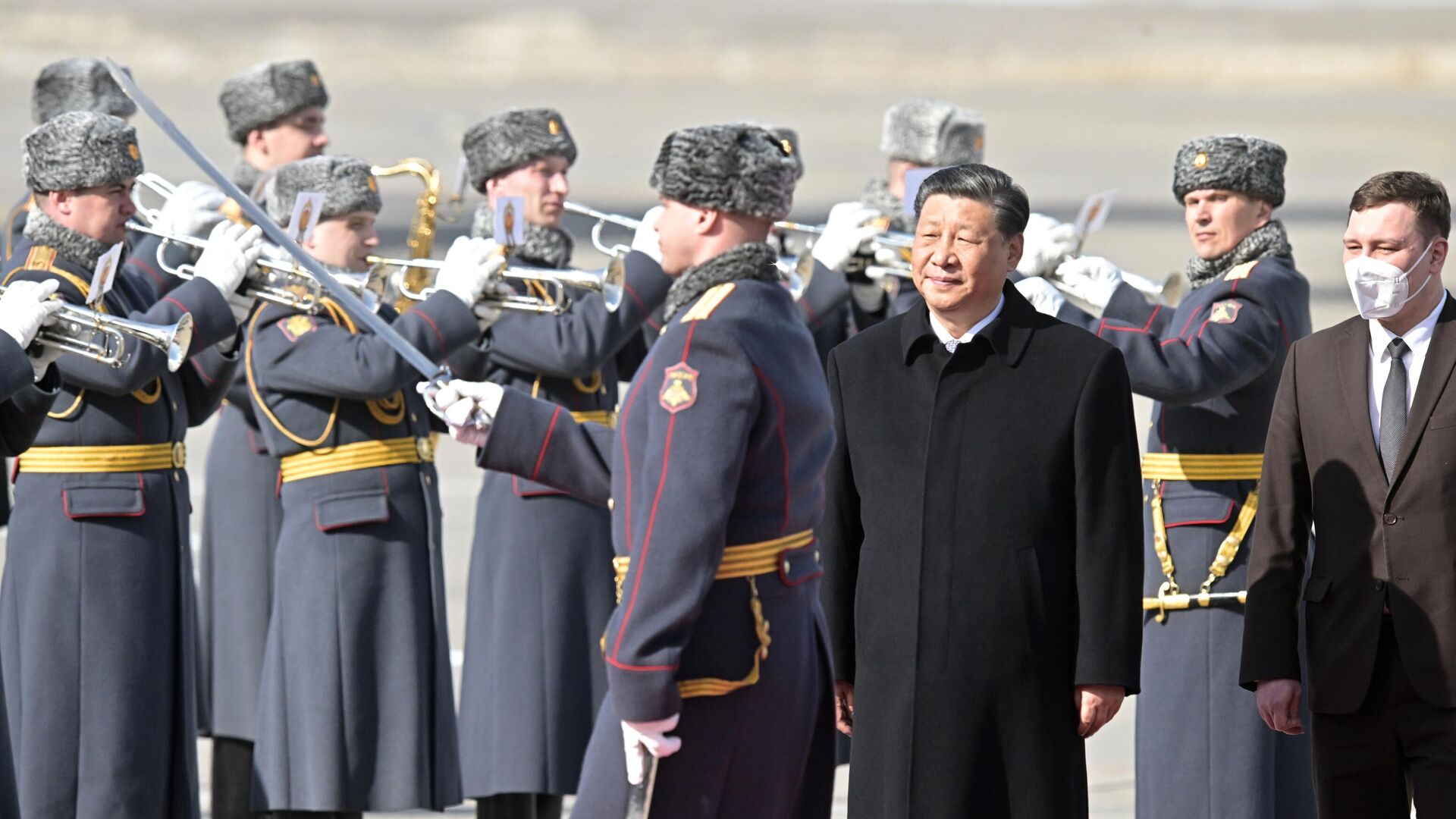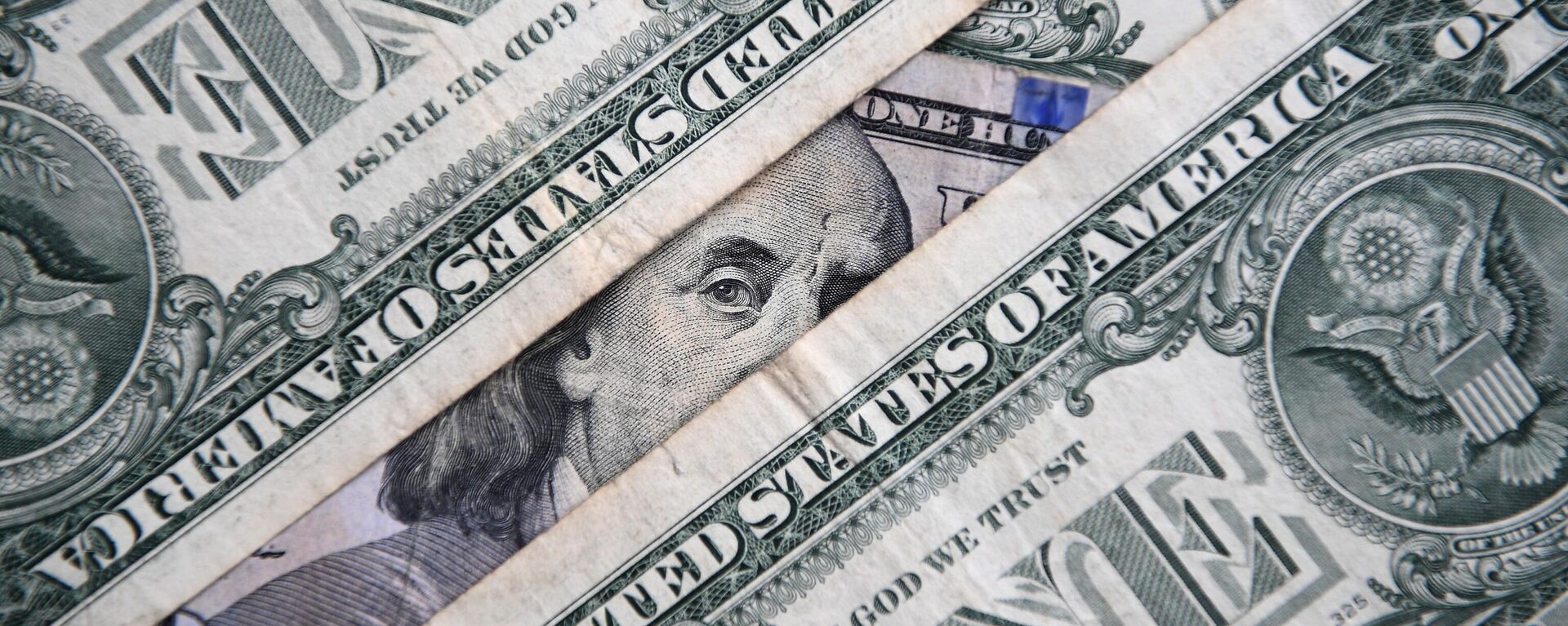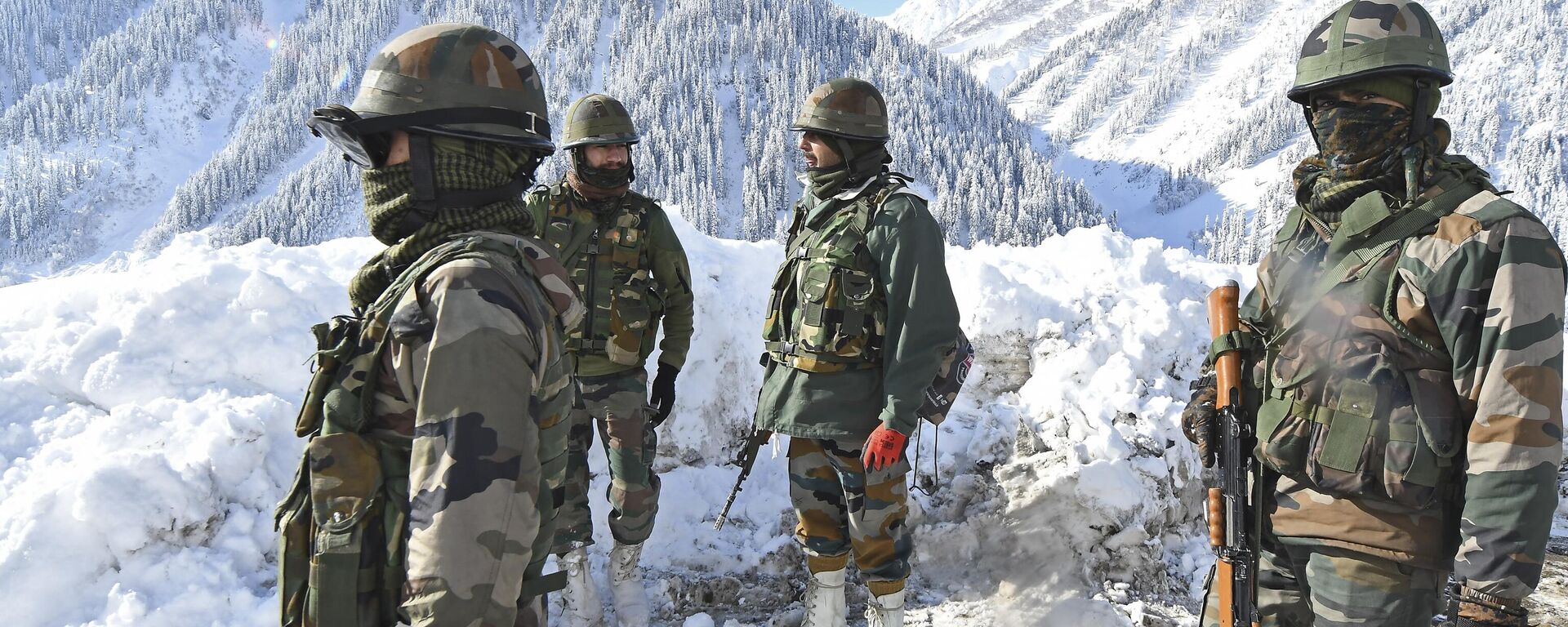How Can Growing China-Russia Ties Benefit India?

© Sputnik
/ Subscribe
Longread
Chinese President Xi Jinping and Russian President Vladimir Putin held talks in Moscow on Monday. The Chinese leader is on a three-day official visit to Russia.
An expanding geopolitical partnership between Russia and China could prove “beneficial” for India as all three countries share a common stance on many global issues, an academic has told Sputnik.
Boris Volkhonsky, an associate professor at the Institute of Asian and African Countries at Moscow State University, underlined that both Moscow and Beijing were involved in developing monetary mechanisms not pegged to the US dollar.
“De-dollarization is good for everybody… It could be beneficial because we are moving away from the dollar, and Indian companies are moving away from secondary sanctions by moving to these settlements, bypassing US banks,” Volkhonsky explained.
For its part, New Delhi has been actively involved in efforts to ditch the US dollar in favor of trade in local currencies with many countries. New Delhi said last week that it had introduced such a trading mechanism with 18 countries.
Dr. Alexey Kupriyanov, who heads the Group on South Asia and the Indian Ocean of the Center for Asia Pacific Studies at the Institute of World Economy and International Relations of the Russian Academy of Sciences, said that a Yuan-Ruble mechanism between Beijing and Moscow demonstrated that it is possible to trade without the US dollar.
“Indians themselves know this, but it may be possible to fine-tune a number of mechanisms that would allow us, for example, to evade secondary sanctions for trade with sub-sanctioned Russian companies, and facilitate this task later on in Russia-India relations,” Kupriyanov stated.
India is Against the Unipolar World Order, Just Like Russia and China
Another point of convergence between India, China, and Russia is that all the three countries are against a “unipolar world order” dominated by the US and its allies, Volkhonsky noted.
He underscored that both Moscow and Beijing are already engaged in efforts to promote a multilateral world order as an alternative to the West-dominated global system.
In fact, President Xi Jinping said ahead of his departure for Moscow that the "prevailing trends of world multi-polarity, economic globalization and greater democracy in international relations are irreversible."
Further, the three countries are part of multilateral groupings such as BRICS, the Shanghai Cooperation Organization (SCO) and RIC (Russia, India, and China), all of which seek to take an independent stance on key global issues.
Volkhonsky reckoned that the SCO could probably become a “nucleus” for the whole of Eurasia and serve as an alternative to the European Union and the “American diktat” in the region.
He further expressed confidence that such multilateral groupings could help India achieve its economic, social, and human development potential to be the global superpower that it desires to be.
“But there is still a lot of work to be done. Of course, the development of multilateral mechanisms in Eurasia, represented by the SCO, and global mechanisms, represented by the BRICS, are mechanisms that should facilitate this,” stated the Russian expert.
Volkhonsky also rejected the argument in some sections of Indian strategic circles about a growing Russia-China relationship posing a threat to New Delhi.
“I think these fears are unfounded, because China, India, and Russia are all members of BRICS, the SCO, and G20, and in general, the positions on global issues are more or less the same everywhere,” he said.
He said that Moscow’s ties with New Delhi were still very much a priority, even as Russia expands its cooperation with Beijing. However, “we cannot interfere in the relationship between India and China, because both sides believe that it is a bilateral relationship,” stated Volkhonsky.
India Backs a ‘Multipolar World, Multipolar Asia’
Offering his take on the issue of multilateralism, Dr. Alexey Kupriyanov spelled out the slight differences in the approach of China and India.
He said that New Delhi was in favor of developing a “multipolar world and a multipolar Asia.”
“In general, the ideal world from India's point of view is a great many poles of power. China, Russia, the United States, the United Kingdom, the European Union, and of course India. Between all the other poles of power, India can safely balance, maneuver, and benefit by standing with one pole of power against the other, or, for example, by acting as a leader itself,” Kupriyanov explained.
The expert reckoned that there are some concerns in the minds of Indians about Beijing’s role in Asia.
“In their view, the Chinese follow the logic of a multipolar world - unipolar Asia. That is, we are for a multipolar world, but we have to be the dominant power in Asia,” he stated.
‘Russia Can Help China Understand Indian Sensitivities’
Kupriyanov categorically rejects the argument in certain Indian strategic circles about a growing Beijing-Moscow strategic partnership posing a threat to New Delhi’s interests.
“The main reason for them is that Indian politicians are very afraid that Russia will become too dependent on China. That is, instead of being a pole of power, which is what India wants, Russia will turn into a Chinese vassal, thus strengthening China,” he stated.
The expert underscored that Russia was never going to become a “junior partner” or a “vassal state” of China, as some Western-minded experts in India would like to believe.
Kupriyanov noted that on the contrary, a Russia-China rapprochement could present an opportunity for Moscow to help Beijing understand New Delhi’s “sensitivities” in a better way.
“If… Russia succeeds in convincing the Chinese friends that they should be more sensitive, that they should be more attentive to Indian interests, that they shouldn't push when they shouldn't, that they shouldn't push the issue of border disputes, for example, and that they should make concessions,” the expert stated.
He said that the 1962 Sino-India border war is an “unpleasant memory”, which still lives on in the minds of many Indians.
Things to Know About Sino-Indian Border Tensions
Since the 1962 conflict, the border situation between India and China had largely remained calm and peaceful till the military standoff in eastern Ladakh began in April-May 2020.
The two countries have achieved troop disengagement and de-escalation in the north and south of Pangong Tso and the Gogra Hot-Springs area through talks at the military commander level, as well as through diplomatic and political consultations. However, over 60,000 soldiers from each side are engaged in standoff at two friction points — the Depsang and Demchok sectors.
The deadly clashes between Indian and People Liberation Army (PLA) troops in the Galwan Valley region led to 20 Indian and five Chinese casualties.
Both India and China have rejected any external interference in the ongoing dispute, arguing that it remains a bilateral matter between the two Asian neighbors.


